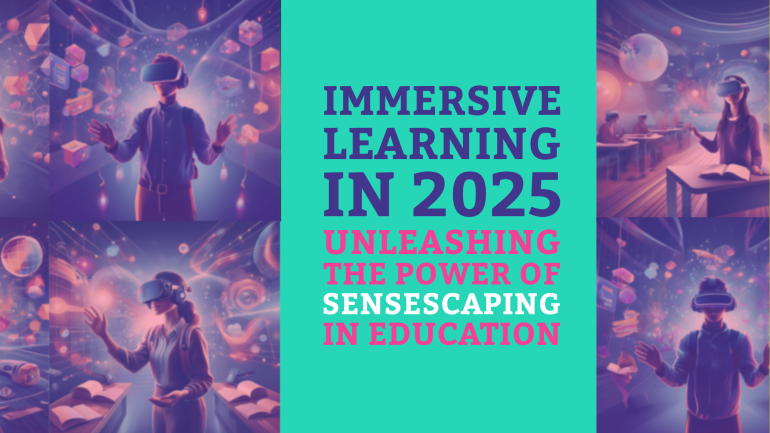Table of Contents
TL;DR: Empowering Academic Success Through Knowledge Sharing Cultures in Universities
- Clear Communication: Establishing a knowledge sharing culture in universities requires clear and effective communication among students, faculty, and staff.
- Collaborative Environment: Universities should foster a collaborative environment where sharing knowledge is encouraged and celebrated.
- Use of Technology: Leveraging technology tools can facilitate knowledge sharing by providing platforms for communication and collaboration.
- Recognition and Incentives: Providing recognition and incentives for individuals and groups who contribute to knowledge sharing can motivate others to participate.
- Continuous Learning: Encouraging a culture of continuous learning and professional development can further enhance knowledge sharing among university members.
Just as crucial as the curriculum itself, knowledge sharing cultures within universities play a pivotal role in the academic and professional growth of students and faculty members alike. Universities serve as hubs of intellectual exchange and innovation, where fostering an environment that promotes collaboration, openness, and information exchange is important.
Theoretical Background
Defining Knowledge Sharing Cultures
Some of the most successful organizations in the world are known for their strong knowledge sharing cultures. These cultures emphasize the importance of sharing information, ideas, and experiences among members of the organization. In a university setting, a knowledge sharing culture can foster collaboration, innovation, and continuous learning among students, faculty, and staff.
Models and Theories of Knowledge Sharing
On the other hand, understanding the models and theories of knowledge sharing can provide a framework for universities to enhance their knowledge sharing cultures. Models like Nonaka and Takeuchi’s Knowledge Spiral and theories like Social Exchange Theory and Communities of Practice offer valuable insights into how knowledge is created, shared, and utilized within an academic community.
An exploration of models and theories of knowledge sharing can help universities identify the most effective strategies for promoting knowledge sharing among their members. By applying these models and theories, universities can create a more collaborative and innovative environment where knowledge flows freely and contributes to the overall success of the institution.
Factors Influencing Knowledge Sharing
- Organizational Structure and Governance
- Trust and Interpersonal Relationships
- Motivation and Incentives
- Technology and Infrastructure
Organizational Structure and Governance
Influencing how knowledge is shared within universities, organizational structure and governance play a crucial role. The way departments are organized, reporting structures, and decision-making processes can either facilitate or hinder knowledge sharing among faculty members and students. A decentralized structure with open communication channels and collaborative decision-making processes tends to promote a culture of sharing knowledge and ideas.
Trust and Interpersonal Relationships
Influencing the willingness to share knowledge are trust and interpersonal relationships within the academic community. When individuals trust their colleagues and have strong relationships with them, they are more likely to share their expertise and insights. Trust is built over time through consistent interactions, mutual respect, and a supportive environment.
To foster trust and interpersonal relationships, universities can encourage team-building activities, mentorship programs, and create spaces for informal interactions among faculty members and students. These initiatives can help strengthen connections and create a sense of belonging within the academic community.
Motivation and Incentives
For individuals to actively engage in knowledge sharing, motivation and incentives play a significant role. Recognizing and rewarding contributions to knowledge sharing initiatives can motivate faculty members and students to participate more actively. Incentives such as research grants, awards, and professional development opportunities can further enhance motivation for sharing knowledge.
Incentives can be tailored to align with the strategic goals of the university and to encourage behaviors that contribute to building a culture of knowledge sharing. By recognizing and incentivizing collaborative efforts and sharing best practices, universities can create a more conducive environment for exchanging ideas and expertise.
Technology and Infrastructure
Relationships with technology and infrastructure also impact knowledge sharing within universities. The availability of digital platforms, communication tools, and repositories can facilitate seamless sharing of information and resources among faculty members and students. A reliable infrastructure that supports online collaboration and knowledge sharing initiatives can enhance the overall sharing culture.
With advancements in technology, universities can leverage tools such as virtual collaboration platforms, cloud storage solutions, and online learning management systems to create a more interconnected knowledge sharing ecosystem. Investing in technology and infrastructure that support information exchange can help streamline communication and collaboration processes, leading to more efficient knowledge sharing practices.
Strategies for Enhancing Knowledge Sharing
Policy Development and Implementation
Implementation of effective policies is crucial in fostering a knowledge-sharing culture in universities. Policies should outline the expectations, responsibilities, and benefits related to sharing knowledge within the academic community. It is important to involve key stakeholders in the development of these policies to ensure their buy-in and successful implementation.
Training and Professional Development
An integral aspect of enhancing knowledge sharing in universities is providing ongoing training and professional development opportunities. These initiatives can equip faculty, researchers, and students with the necessary skills and tools to effectively share their knowledge with others. By investing in training programs, universities can cultivate a culture that values continuous learning and collaboration.
Furthermore, offering training sessions on communication skills, collaborative tools, and best practices for knowledge sharing can empower individuals to share their expertise more efficiently. By supporting the development of these skills, universities can enhance the overall knowledge-sharing ecosystem on campus.
Community Building and Social Networks
Strategies for community building and fostering social networks play a critical role in promoting knowledge sharing within universities. Establishing forums, discussion groups, and collaborative spaces can facilitate interactions among members of the academic community. By creating a sense of belonging and camaraderie, universities can encourage individuals to share their knowledge and expertise more openly.
This approach can also help in breaking down silos and promoting interdisciplinary collaborations. By connecting individuals with diverse backgrounds and expertise, universities can create a vibrant ecosystem where knowledge flows freely across different disciplines and departments.
Knowledge Management Systems
An effective knowledge management system is important for storing, organizing, and sharing information within universities. By implementing robust systems and technologies, universities can streamline the process of capturing and disseminating knowledge. These systems can provide a centralized repository for research findings, best practices, and other valuable insights.
Additionally, knowledge management systems can enable individuals to access information quickly and efficiently, leading to improved decision-making and innovation. By investing in these systems, universities can create a sustainable infrastructure for fostering a culture of knowledge sharing and collaboration.
Challenges and Barriers
Intellectual Property and Privacy Concerns
One of the significant challenges in fostering a knowledge-sharing culture in universities is navigating the complexities of intellectual property rights and privacy concerns. Academics and researchers are often hesitant to share their work openly due to fears of plagiarism, misappropriation, or unauthorized use. This reluctance can hinder the free flow of knowledge and collaboration among faculty members and students.
Resistance to Change and Organizational Silos
For a knowledge-sharing culture to thrive, it is vital to address the resistance to change and organizational silos prevalent in universities. Faculty members and departments may be accustomed to working independently or within their respective silos, making it challenging to embrace a more collaborative and open approach to sharing knowledge. Breaking down these barriers requires a concerted effort to shift mindsets and encourage a culture of cooperation and transparency.
For instance, establishing cross-departmental working groups or committees can help foster interdepartmental collaboration and communication, breaking down silos and promoting a more integrated approach to knowledge sharing.
Communication Gaps and Misalignment
Privacy concerns can also act as a barrier to effective communication and knowledge sharing in universities. Faculty members and students may be wary of sharing sensitive information or research findings due to concerns about confidentiality and privacy breaches. This can lead to communication gaps and misalignment, hindering the dissemination of valuable knowledge across the university community.
Challenges in intellectual property, resistance to change, and communication gaps pose significant obstacles to building a robust knowledge-sharing culture in universities. Addressing these barriers requires proactive measures to promote a culture of trust, collaboration, and openness among faculty members, researchers, and students.
Measuring Knowledge Sharing Effectiveness
Metrics and Performance Indicators
Metrics are vital tools for measuring the effectiveness of knowledge sharing in universities. Quantitative and qualitative data play a crucial role in understanding the impact of knowledge sharing initiatives. Metrics such as the number of shared resources, participation rates in knowledge sharing activities, and user feedback on the usefulness of shared knowledge can provide valuable insights into the success of knowledge sharing efforts. Performance indicators like improved student grades, research output, and collaborative projects can also indicate the effectiveness of knowledge sharing within the university community.
Feedback Mechanisms and Continuous Improvement
Performance feedback mechanisms are vital for ensuring continuous improvement in knowledge sharing cultures. By collecting feedback from participants regularly, universities can identify areas for improvement and make adjustments to their knowledge sharing strategies. This feedback loop promotes a culture of continuous learning and enhancement, where the focus is on optimizing knowledge sharing processes to better serve the university community.
The establishment of regular feedback mechanisms not only allows for the identification of gaps in knowledge sharing practices but also enables stakeholders to provide suggestions for improvement. Universities that prioritize feedback mechanisms and continuous improvement are more likely to foster a culture of open communication and collaboration, leading to greater knowledge sharing effectiveness.
Global Trends and Cross-Cultural Considerations
International Collaboration and Exchange
To thrive in today’s interconnected world, universities must emphasize international collaboration and exchange. An vital trend in knowledge sharing is the promotion of cross-border partnerships between universities. This trend allows for the sharing of diverse perspectives, cutting-edge research, and best practices in education. By fostering international collaboration, universities pave the way for breakthroughs in various fields and enhance the overall quality of education and research.
Adapting Knowledge Sharing Practices to Cultural Differences
Adapting knowledge sharing practices to cultural differences is crucial for universities seeking to create inclusive and effective learning environments. Understanding the cultural nuances of knowledge sharing can help bridge communication gaps and foster a more harmonious exchange of ideas among students and faculty members. It is important to acknowledge that different cultures have distinct communication styles, hierarchical structures, and attitudes towards authority. By recognizing and respecting these differences, universities can create a more welcoming and collaborative environment for all individuals.
For instance, in some cultures, students may be more reserved and less likely to actively participate in class discussions. Universities can adapt by incorporating alternative forms of participation, such as online forums or group projects, to accommodate diverse learning styles. By being mindful of cultural differences and adapting knowledge sharing practices accordingly, universities can cultivate a more inclusive and enriching academic environment.
Future Directions and Innovations
The Role of Artificial Intelligence and Machine Learning
All universities are looking toward the future, where the role of artificial intelligence and machine learning is expected to revolutionize knowledge sharing cultures. Machine learning algorithms can analyze vast amounts of data to identify patterns and trends, leading to more personalized learning experiences for students. This innovation has the potential to significantly enhance the quality of education by tailoring teaching methods to individual student needs.
Predictive Analytics and Data-Driven Decision Making
Intelligence Universities are increasingly turning to predictive analytics and data-driven decision-making processes to improve operational efficiency and student outcomes. By leveraging data analytics, universities can anticipate future trends, improve resource allocation, and enhance student success initiatives. This strategic use of data has the power to transform the way universities approach academic planning and student support services.
Plus, by adopting predictive analytics, universities can gain deeper insights into student behavior, academic performance, and overall satisfaction levels. This information can then be utilized to proactively address challenges, implement targeted interventions, and ultimately drive student success.
Summary of Key Insights
On a high level, the key insights presented in this chapter underscore the importance of embracing innovative technologies such as artificial intelligence, machine learning, and predictive analytics in shaping the future of knowledge sharing in universities. These technologies present vast opportunities for enhancing the teaching and learning experience, optimizing institutional operations, and fostering a culture of data-driven decision-making.
Recommendations for Academia
Predictive analytics can be a powerful tool for academia in improving student retention rates, identifying at-risk students, and offering personalized learning experiences. Universities should invest in training faculty and staff on how to effectively use predictive analytics tools and interpret data insights. Additionally, institutions should prioritize data security and ethical considerations when implementing predictive analytics strategies.
Final Thoughts on the Evolution of Knowledge Sharing in Universities
Making data-informed decisions and embracing technological advancements are imperative for universities striving to stay ahead in the ever-evolving landscape of knowledge sharing. Collaboration between academia and industry experts is important to drive innovation and ensure that universities remain at the forefront of knowledge creation and dissemination.
Directions
FAQ
Q: What is a knowledge sharing culture in universities?
A: A knowledge sharing culture in universities refers to an environment where individuals freely exchange information, ideas, and expertise to enhance learning and innovation.
Q: Why is knowledge sharing important in universities?
A: Knowledge sharing is crucial in universities as it fosters collaboration, accelerates research and discovery, promotes critical thinking, and enhances overall academic performance.
Q: How can universities promote a knowledge sharing culture?
A: Universities can promote a knowledge sharing culture by encouraging open communication, providing platforms for sharing ideas, recognizing and rewarding contributions, and fostering a supportive and inclusive environment.
Q: What are the benefits of a strong knowledge sharing culture in universities?
A: A strong knowledge sharing culture in universities leads to increased academic productivity, better problem-solving skills, improved student engagement, enhanced research outcomes, and a more innovative and competitive institution.
Q: How can students contribute to a knowledge sharing culture in universities?
A: Students can contribute to a knowledge sharing culture in universities by actively participating in class discussions, sharing resources with peers, collaborating on projects, seeking feedback, and engaging in extracurricular academic activities.





